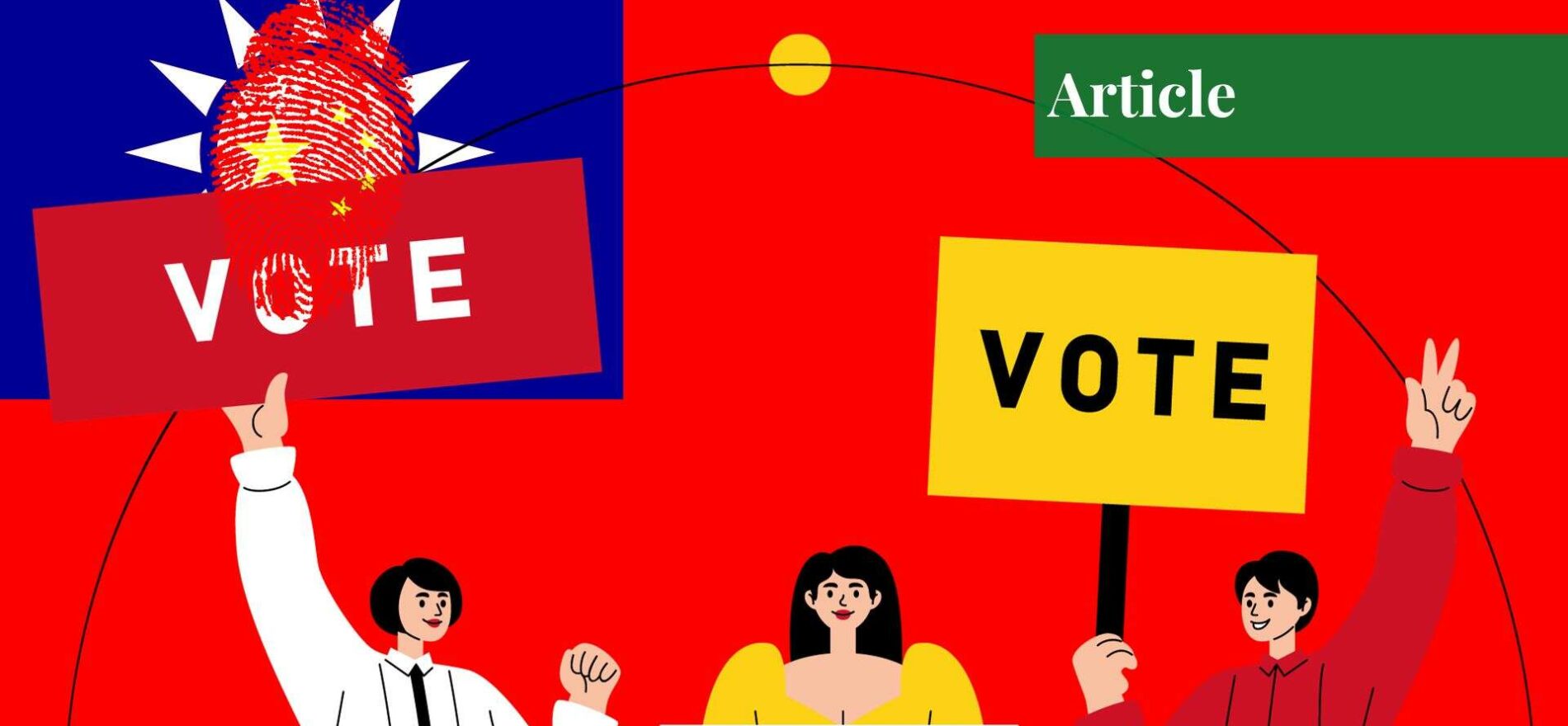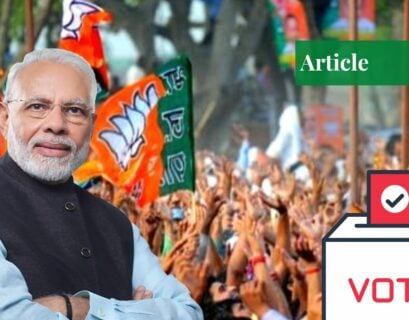Elections Ahead
The presidential elections scheduled for January 13, 2024 in Taiwan are poised to carry significant regional and global implications. The three contenders vying for the position are Lai Ching-te representing the Democratic Progressive Party (DPP); Hou Yu-yi, the official nominee of the Kuomintang (KMT); and Ko Wen-je, who is running on behalf of the Taiwan People’s Party (TPP).
The DPP emerged as a response to the four-decade-long dictatorship imposed on Taiwan by the Kuomintang whose leaders had sought refuge on China’s mainland in 1949. According to the Liberty Times, when asked about their preference for a change in government, 33.4% of poll participants expressed a desire for the DPP to maintain its position. The KMT garnered 30% support, whereas the TPP found favor with 15.5% of respondents.
Reports suggest that the margin between DPP’s Lai and KMT’s Hou is extremely narrow, just a fraction of a percentage point. Considering that no party in Taiwan has secured victory in three consecutive presidential elections, there is little indication that Lai will be the one to break this historical trend. Recent polls also reveal public dissatisfaction with the current state of affairs, signaling a preference for a change in government following eight years of DPP rule.
What if DPP Wins?
As the 2024 presidential elections approach, the growing economic instability coupled with a series of sexual harassment incidents involving DPP officials are likely to further strengthen this sentiment. Lai holds the belief that there is no necessity for Taiwan to formally declare independence since it is already a sovereign and independent state recognized as the Republic of China. Nonetheless, there is a possibility that he may promote Taiwan’s independence after assuming power, a scenario that could heighten the likelihood of conflict in the Taiwan Strait.
In the event of Lai’s victory, it is probable that Taiwan-China conflict will experience further tensions, as Beijing is likely to escalate both military and economic pressures to deter Lai from undertaking radical actions. Under Lai, it is probable that Taiwan will persist in the incumbent President Tsai’s defense policy. This entails bolstering the country’s military capabilities in response to the escalating Chinese threat, encompassing incremental boosts to the defense budget and appeals to the public to be prepared for the defense of Taiwan in the face of potential attacks.
Furthermore, the current administration’s New Southbound Policy, which involves strengthening trade, investment, and interpersonal connections with Southeast Asia, South Asia, Australia, and New Zealand, is likely to remain consistent. This policy aims to diversify Taiwan’s economic relations and mitigate its economic dependence on China.
What if KMT Wins?
The opposition parties, including the KMT, do not support the idea of reunification with China. However, the KMT, in particular, asserts that maintaining peace is more achievable through establishing closer ties and engaging in dialogue. While traditionally advocating for strong connections with China, the party vehemently denies being pro-Beijing.
Should Hou secure the presidency, it is probable that tensions with China will diminish, as Beijing reduces its pressure on Taiwan to enhance the KMT’s domestic legitimacy and to facilitate the resumption of cross-strait dialogue. In such a scenario, there would be a reduction in military provocations, providing Taiwan with greater room to engage internationally, potentially even participating as an observer in international bodies.
While the short-term risk of war would decrease, the long-term challenge to Taiwan’s sovereignty would persist. Yet, in the case of KMT success, the primary focus will not be on strengthening Taiwan’s military capabilities or fostering closer collaboration with the United States. Instead, the emphasis would shift towards enhancing relations with Beijing. This could entail a reduction in defense spending and a moderation of the rhetoric that has justified Taiwan’s recent augmentations in defense expenditure and compulsory conscription.
What if TPP Wins?
On the other hand, TPP’s Ko contends that preserving the status quo represents the sole viable option for Taiwan. He straightforwardly asserts that discussing reunification or independence is futile at present, as achieving either is currently impractical. Running on a broadly undefined middle ground, Ko asserts that he would excel in diplomatic conversations with both the United States and China, while concurrently enhancing Taiwan’s defenses. This balanced vision has garnered him significant popularity, particularly among the country’s youth.
The potential impact of a Ko presidency on cross-strait relations remains uncertain due to the ambiguous nature of his policy towards China. Despite Ko receiving a positive reception in China during his tenure as Taipei’s mayor, it remains unclear whether the Communist Party of China (CCP) would trust a Ko-led presidency enough to ease military threats.
Nonetheless, as Ko is not affiliated with an officially pro-independence party and lacks ideological constraints, he could be positioned to adjust his policy, potentially steering cross-strait relations towards a more sustainable trajectory. Interestingly, Ko has advocated for an increase in Taiwan’s defense spending, proposing a raise from the current 2.5 percent to three percent of GDP. Additionally, he emphasizes the need to enhance Taiwan’s capabilities in information and cyber warfare.
China’s Meddling
Amidst all this electoral mayhem, the incumbent government of DPP is blaming China for interfering in this process. In the past, China has attempted to influence elections in Taiwan through online campaigns and temples. Although China has refuted these claims, the recent events endorse such claims. China is using both its hard power and soft power to get the desired outcome of the 2024 elections in Taiwan. Airlines in China have decreased ticket prices for people traveling to Taiwan by up to 70 percent. DPP claims that it is an attempt by China to send pro-China Taiwanese to cast a vote in favor of KMT.
Moreover, China is spreading scepticism about the credibility of the United States as an ally. It is also using violence as its strategy to intimidate the Taiwanese people by flying fighter jets in the Air Defense Identification Zone of Taiwan. In addition, the PRC has also deployed tugboats, balloons, and naval ships near the island. Su Tzu-yun, a Taiwanese military and defense expert, holds that these balloons are a potential security threat as they operate at a similar height to civilian airplanes. Reportedly, the the People’s Republic of China (PRC) is also arresting Taiwanese residing in the mainland. These measures are being seen as grey zone tactics which implies employing non-military and military strategies to coerce or intimidate the opponent.
The KMT candidate is also intimidating the local voters through its rhetoric that voting for DPP will be tantamount to voting for war with the PRC. The latter seeks the KMT’s victory in the 2024 elections as it could lead to the reunification of Taiwan with the mainland nation. DPP’s victory in the upcoming elections implies economic loss for the island due to fractured relations with the mainland. Mcoreover, the declining power of the United States and its tarnishing soft image can also result in bolstering the KMT’s position.
The people of Taiwan possess a history of tactical voting which implies that they do not want to waste their vote. Therefore, the voters of the third party might shift to the two strong parties, DPP and KMT. TPP might be out of the race, but the KMT’s victory will also fulfil the former’s agenda of ousting DPP out of the government. China will strive to its fullest to make KMT win the elections. However, this will have global ramifications and will increase tensions in the Pacific region.
If you want to submit your articles, research papers, and book reviews, please check the Submissions page.
The views and opinions expressed in this article/paper are the author’s own and do not necessarily reflect the editorial position of Paradigm Shift.



















